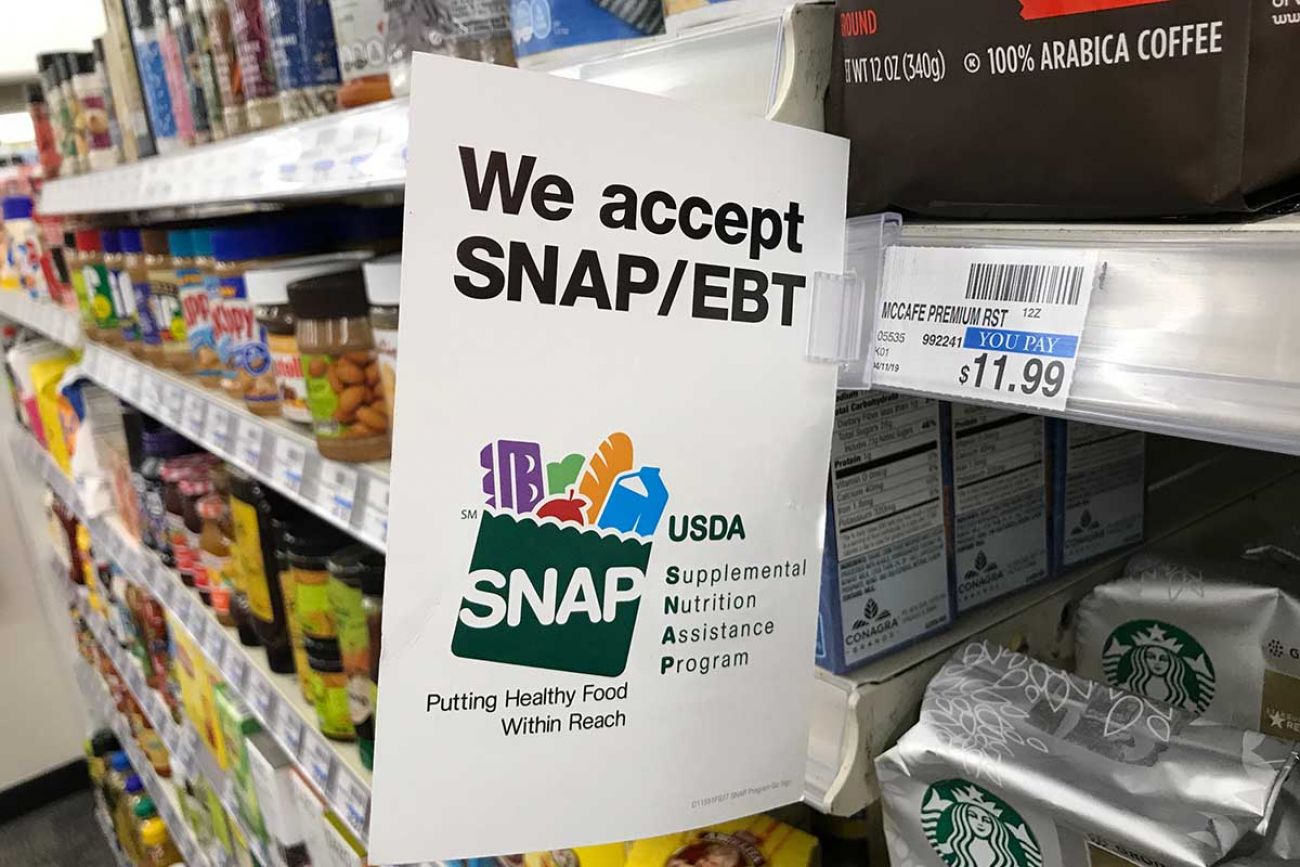From food help to rent aid, here’s how Michigan will spend $2.2B stimulus

LANSING — Another wave of federal stimulus funds will flow to needy families, local governments and disaster response efforts under a $2.2 billion spending bill signed into law Wednesday by Gov. Gretchen Whitmer.
The first-term Democrat had also hoped to sign a $4.4 billion spending plan for Michigan schools, but that proposal stalled in the state House last week amid debate over how to allocate some of the payments for districts.
The massive influx of federal funding was provided months ago by Congress, former President Donald Trump and President Joe Biden to help states, cities and their residents survive and recover from the COVID-19 pandemic.
Related:
- Michigan schools in line for ‘historic’ spending increase under new budget
- Michigan unemployment agency resumes in-person office visits
- Whitmer: Use stimulus to give Michigan $15 minimum wage, aid business
- Michigan GOP pushes critical race, trangender bills as school funding in limbo
- Federal aid helps bring added $3.5 billion surplus to Michigan
Michigan has been slow to spend the money because of a prolonged standoff between Whitmer and GOP leaders, who had refused to negotiate while the Democratic governor and her administration made pandemic policies without their input.
A recent truce jumpstarted bipartisan negotiations, and a day after ending all COVID-19 restrictions, Whitmer called the $2.2 billion bill signing “another positive thing that is happening” in Michigan.
“There are few needs that are more pressing than housing and hunger,” the governor said at the Foster Community Center in Lansing, praising provisions that will extend enhanced food assistance benefits and rental aid.
Whitmer urged the Legislature “continue this spirit of collaboration” to use a massive influx of federal relief dollars for “transformational investments.”
There are more negotiations to come: In addition to other unspent federal stimulus dollars, Michigan has a $2 billion budget surplus of its own. Legislators are supposed to present Whitmer a balanced state budget by July 1, but they have already indicated they may extend that deadline into the fall.
But the $2.2 billion spending bill signed Wednesday is a big deal for cities awaiting their own federal stimulus funds and low-income families still struggling to pay bills as a federal eviction moratorium expires.
Here is where the money will go:
$1.5B for food assistance payments
The spending plan will allow Michigan to continue providing a 15 percent boost in monthly food assistance benefits through the end of September.
For a family of four, that means $102 extra dollars a month, a total of $782.
Congress designed the temporary increase in assistance to help families cover food-related costs that may have increased during the pandemic, including extra meals for children who would have otherwise received them at school.
Since March 2020, the state has provided $1.3 billion in emergency food benefits to residents, according to Elizabeth Hertel, director of the Michigan Department of Health and Human Services.
The money provides extra "food purchasing power" for needy Michiganders and "has a positive impact on our state economy, which is incredibly important right now," Hertel said.
$378M for emergency rental assistance
With a federal moratorium on eviction set to expire at the end of June, the spending deal will allow Michigan to continue through September a program to help low-income families pay rent or utility bills.
Michiganders who suffered a “hardship” because of COVID-19, including a lost job or wages, and earn less than 80 percent of their local median income can apply for up to 12 months of rental assistance and up to $2,500 for utility payments.
In Lansing, previous funding for the rental assistance program has coincided with a 22 percent reduction in the number of people using shelters, said Kimberly Coleman, the city's Director of Human Relations and Community Services.
"It cannot be overstated how vital these funds have been and continue to be," she said. "If there is a silver lining to COVID, it is the clarity that our community is better off preventing homelessness than dealing with its aftermath, which includes disruption of school, work, job loss and the loss of housing."
$322 million for COVID-19 funding for local governments
The federal government is giving Michigan local governments a collective $4.4 billion in stimulus funding — half this year, and half next — but only some of that money needs to be approved by the Legislature and governor.
The $322 million advanced Wednesday is the first half of the $644 million awarded to "non-entitlement units," including smaller cities, townships and villages. Larger cities ($1.8 billion total) and counties ($1.9 billion) will receive funding directly from the federal government.
Under federal guidelines, local governments can use the funding to create assistance programs, provide premium pay for essential workers, replace revenue lost during the pandemic or to upgrade water, sewer or broadband infrastructure.
$65 million for disaster assistance vendors
The plan includes $65 million in federal funding for state police to pay vendors who provided "emergency and disaster response and mitigation services" across Michigan.
Whitmer said some of that money will cover flood recovery services in Midland County, where two dams collapsed last year and caused an estimated $200M in damages to 2,500 buildings.
“A year later, our neighbors in Midland, they’re coming back, and today we’re proud to send them some disaster aid to help rebuild homes and small businesses,” Whitmer said.
$21 million to cut losses
The legislation will give the Whitmer administration $21 million in state funding — not federal stimulus — to buy back "tax vouchers" the state issued as part of a risky venture capital program launched in 2003 and disbanded in 2015.
The complicated tax maneuver is expected to "free up reserve cash" and reduce total costs of the Venture Michigan initiative created under former Gov. Jennifer Granholm as an attempt to turn the state into the next Silicon Valley.
This state spending has nothing to do with COVID-19 or the federal stimulus, but it's something the Whitmer administration has wanted to do for a while and included in this latest deal.
What’s not included: $4.4 billion for K-12 schools
The Michigan House last week twice delayed votes on a separate $4.4 billion spending bill to help schools recover from the COVID-19 pandemic, catch up students who fell behind and make other investments in facilities or programs.
At issue is the Senate’s decision to remove $362 million in “equity payments” for districts that would otherwise receive considerably less funding than others. Some House Republicans want that money back in the bill, and Whitmer said she would support adding it back to the bill as well.
The legislation would send $4.2 billion to Michigan schools under a federal formula the state has no say over. It would provide the most funding to schools with more low-income students, but payments would vary widely by district.
Collectively, schools would have to spend at least $660 million of the money on programs to address learning losses associated with virtual instruction, including summer school and other remediation services.
The bill would give both Whitmer and Republicans something they want: The governor would approve $180 million in funding for private schools, some of which she vetoed in March, and the Legislature would remove strings attached to earlier funding, including an in-person mandate for all summer school.
See what new members are saying about why they donated to Bridge Michigan:
- “In order for this information to be accurate and unbiased it must be underwritten by its readers, not by special interests.” - Larry S.
- “Not many other media sources report on the topics Bridge does.” - Susan B.
- “Your journalism is outstanding and rare these days.” - Mark S.
If you want to ensure the future of nonpartisan, nonprofit Michigan journalism, please become a member today. You, too, will be asked why you donated and maybe we'll feature your quote next time!




